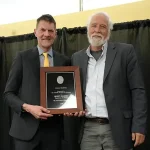Funding Resources
Jump to Resources for Current Students
For New Applicants
The Department of History has approximately 27 teaching and research assistant awards that we use to support our graduate students. These assistantships come with tuition waivers, health insurance coverage and annual stipends. The department evaluates new applicants for funding as part of the admissions process, and funding awards are merit-based.
The department will let accepted students know about their funding status soon after notifying them of admission. Newly admitted students with funding offers will typically receive multi-year funding packages, although sometimes it may only be possible for the department to extend a funding offer for a single year. Most students who receive assistantships are candidates for the PhD rather than the MA.
Each year, the department also nominates new applicants and returning students for various fellowships offered through the College of Arts and Sciences. One new student in US History will be awarded the Department’s Klein Fellowship. The department picks nominees for these fellowships as part of our regular admissions process, so there are no additional steps to apply for them. In addition to assistantships, the Department is sometimes also able to provide students with financial support for conference and research travel.
Contact Tore Olsson, Director of Graduate Studies
Funding Resources Outside the Department for Incoming Students
Entering students who do not receive funding through the Department should keep an eye out for funding opportunities elsewhere in the university. In additional to departmental assistantships, in the past History Department students have found assistantships in the College of Arts and Science Advising Center, the Haslam Honors College, and the MARCO Institute, among other places. These other kinds of assistantships can add valuable diversity to students’ professional profiles, and can expand the sorts of jobs for which they might eventually be considered.
Funding for Current Students
Entering students who do not receive funding through the Department should keep an eye out for funding opportunities elsewhere in the university. In additional to departmental assistantships, in the past History Department students have found assistantships in the College of Arts and Science Advising Center, the Haslam Honors College, and the MARCO Institute, among other places. These other kinds of assistantships can add valuable diversity to students’ professional profiles, and can expand the sorts of jobs for which they might eventually be considered.
Contact Tore Olsson, Director of Graduate Studies
Teaching and Research Assistantships
Each year early in the spring semester, the Department evaluates all current students and awards assistantships for the coming year. As the fall semester ends, be sure to meet with your adviser so that he or she is fully apprised of your current plans and progress in the program. Students on multi-year funding packages should expect to receive news about renewal in early spring; students whose funding is year-to-year will usually receive news sometime in March or April.
Conference Travel
If students are accepted to give a paper at a significant academic conference, the department may be able to provide financial support for travel. The amount available varies from year to year, but the department hopes to be able to provide any student with several hundred dollars toward their travel expenses, with $500 as the maximum that any student would receive in a given year. Interested students should email the Director of Graduate Studies where and what they hope to present and provide an estimated budget. They should also ask their advisor to submit a brief email of support. In order to be eligible, students must also apply, whenever possible, for money from the Graduate Student Senate conference travel fund. Students are discouraged from requesting funds to attend small regional or graduate student conferences.
Research Travel
Each spring, the Department accepts applications for research travel support. Generally, these awards will be for $4,000 or less; the amount of money available in a given year varies. Students interested in applying should provide: 1) A 2-page description of the archives or other collections they plan to visit, along with an explanation of their significance for the dissertation project. This description should include projected dates of travel and a list of other grants for which they have applied or plan to apply. We expect students applying for departmental research funding to also apply for external funding whenever possible. 2) A budget that shows projected expenses for travel, lodging, etc. To find the maximum food and lodging expenses students are allowed to request for domestic travel, see GSA per diem rates. For international travel, see foreign per diem rates. Students are asked to be realistic about how much they think they will actually spend. 3) A brief statement from the advisor expressing support for the proposed trip.
Funding Resources for Returning Students Outside the Department
Students, especially those nearing the end of their eligibility, should keep an eye out for funding opportunities elsewhere in the university. In additional to departmental assistantships, in the past History Department students have found assistantships in the College of Arts and Science Advising Center, the Haslam Honors College, and the MARCO Institute, among other places. These other kinds of assistantships can add valuable diversity to students’ professional profiles, and can expand the sorts of jobs for which they might eventually be considered. Various forms of funding are also available through the MARCO Institute, the UT Humanities Center, the UT Graduate School, and the UT McClure Fund. The McClure Fund, for example, is an excellent resource for students needing to travel abroad for summer research. Our students also have a great track record of winning prestigious external fellowships like the Fulbright. Students should make applying for external funding a regular part of their graduate student careers, and should consult with their advisers and with their fellow students about funding opportunities available in their fields.
Contact Tore Olsson, Director of Graduate Studies
“History gives answers only to those who know how to ask questions.”
—Hajo Holborn, German-American historian (1902-1969)



